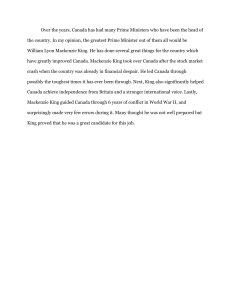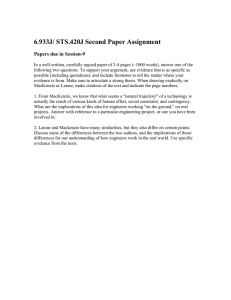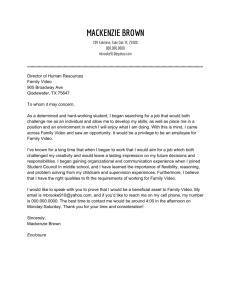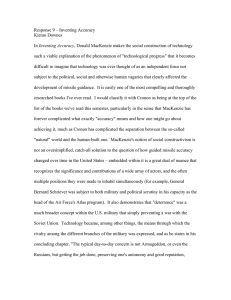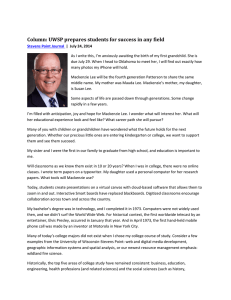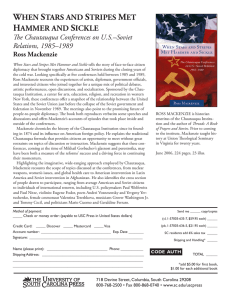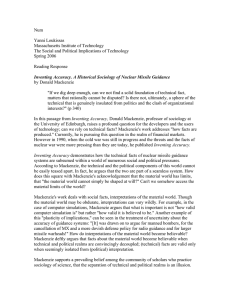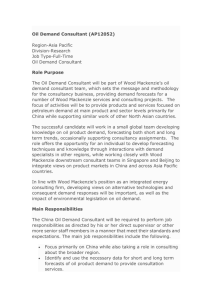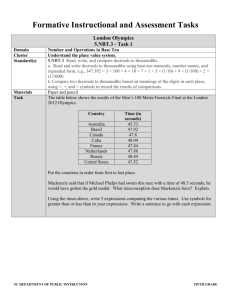The Genealogy of WHO and UNICEF and the Intersecting Careers of
advertisement
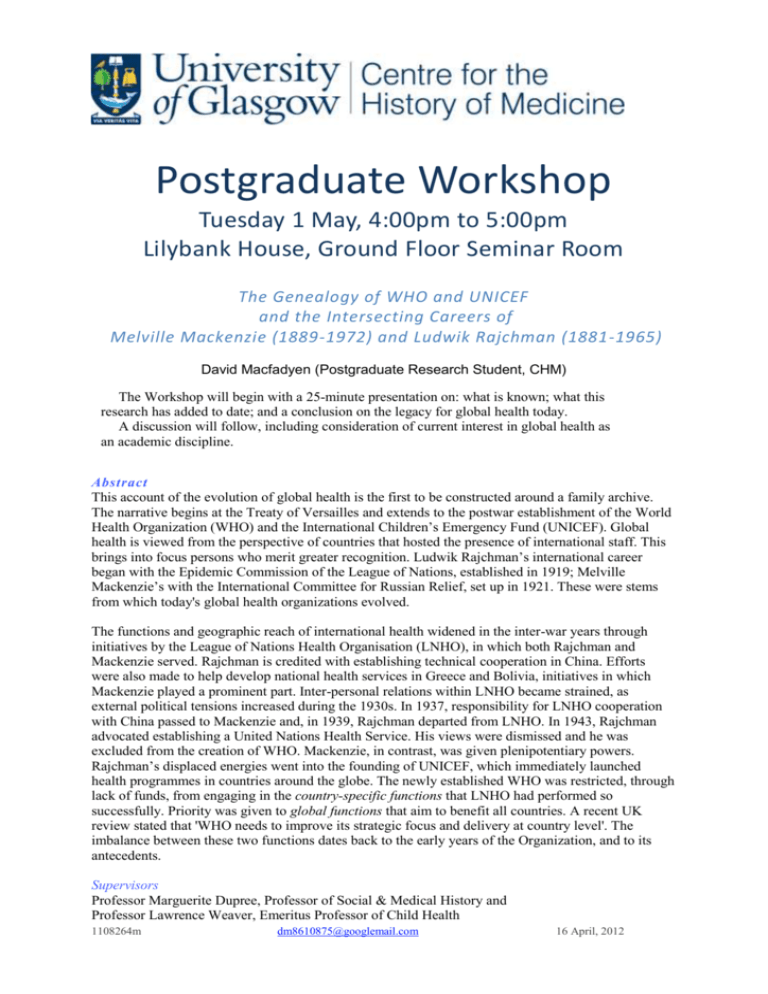
Postgraduate Workshop Tuesday 1 May, 4:00pm to 5:00pm Lilybank House, Ground Floor Seminar Room The Genealogy of WHO and UNICEF and the Intersecting Careers of Melville Mackenzie (1889-1972) and Ludwik Rajchman (1881-1965) David Macfadyen (Postgraduate Research Student, CHM) The Workshop will begin with a 25-minute presentation on: what is known; what this research has added to date; and a conclusion on the legacy for global health today. A discussion will follow, including consideration of current interest in global health as an academic discipline. Abstract This account of the evolution of global health is the first to be constructed around a family archive. The narrative begins at the Treaty of Versailles and extends to the postwar establishment of the World Health Organization (WHO) and the International Children’s Emergency Fund (UNICEF). Global health is viewed from the perspective of countries that hosted the presence of international staff. This brings into focus persons who merit greater recognition. Ludwik Rajchman’s international career began with the Epidemic Commission of the League of Nations, established in 1919; Melville Mackenzie’s with the International Committee for Russian Relief, set up in 1921. These were stems from which today's global health organizations evolved. The functions and geographic reach of international health widened in the inter-war years through initiatives by the League of Nations Health Organisation (LNHO), in which both Rajchman and Mackenzie served. Rajchman is credited with establishing technical cooperation in China. Efforts were also made to help develop national health services in Greece and Bolivia, initiatives in which Mackenzie played a prominent part. Inter-personal relations within LNHO became strained, as external political tensions increased during the 1930s. In 1937, responsibility for LNHO cooperation with China passed to Mackenzie and, in 1939, Rajchman departed from LNHO. In 1943, Rajchman advocated establishing a United Nations Health Service. His views were dismissed and he was excluded from the creation of WHO. Mackenzie, in contrast, was given plenipotentiary powers. Rajchman’s displaced energies went into the founding of UNICEF, which immediately launched health programmes in countries around the globe. The newly established WHO was restricted, through lack of funds, from engaging in the country-specific functions that LNHO had performed so successfully. Priority was given to global functions that aim to benefit all countries. A recent UK review stated that 'WHO needs to improve its strategic focus and delivery at country level'. The imbalance between these two functions dates back to the early years of the Organization, and to its antecedents. Supervisors Professor Marguerite Dupree, Professor of Social & Medical History and Professor Lawrence Weaver, Emeritus Professor of Child Health 1108264m dm8610875@googlemail.com 16 April, 2012
